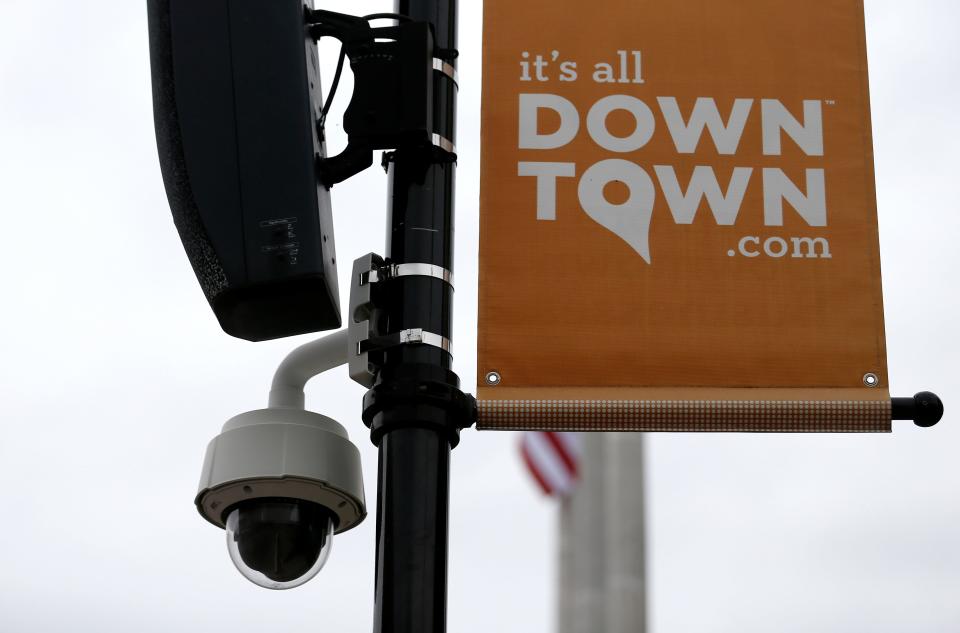Springfield will add license plate recognition cameras. Here's what it means for drivers
The role of video cameras was a theme at Monday's Springfield City Council meeting as a grant for seven additional Flock license plate identification cameras was presented for approval. This was the first council meeting at its temporary location on West Battlefield Road as Historic City Hall undergoes renovations.
The $19,950 grant from the state's Department of Public Safety prompted discussion of keeping crime at bay and how cameras can be a solution.
Currently, there are already 21 Flock cameras around Springfield. The cameras scan license plates that pass through the intersections and run them through various databases that include wanted or stolen vehicles. When there is a match, officers are alerted to the "hit" and can help track those involved in crimes. The addition of these cameras will help cover areas that may currently be overlooked.

"We can always use more because I'm sure there will be gaps," Police Chief Paul Williams said.
Williams presented the grant to Council and said that while traditional surveillance cameras used on Park Central Square and traffic cameras placed around town have more functionality — features like moving and zooming in — those can often be twice the price of a Flock camera.
"I think they supplement each other very well, but I think both are needed," he said.
Expanding use of cameras
The issue of unregistered vehicles or vehicles that are past due for registration renewal has been an increasingly popular topic for city leaders. But these cameras will not be able to catch those driving with expired tags, at least for now.
"I'm not aware of a database that we can hook up to where it would automatically register for expired tags," Williams said. "But we can certainly explore that."
He said that while the camera scans every license plate, unless there is a database to match it against and catch matches, the system will not be able to alert officers to certain license plates. Similarly, those driving without plates will not be able to be tracked. Officers can also enter a certain license plate number to run it against the cameras' registers.
Councilman Brandon Jenson asked if the license plate recognition cameras could be used to identify those who break noise ordinances, with many residents sharing concerns of noise complaints from vehicles.
City Attorney Rhonda Lewsader said they could not because violations must be issued to the driver, not the vehicle.
Flock cameras have proved useful in helping solve Amber Alert cases elsewhere in the nation, Williams said.
More: These Springfield developments gained Planning & Zoning approval despite neighbor concerns
After the first year of the camera use concludes, the cost of operating the solar-powered cameras will be a reoccurring cost.
While the Council unanimously approved the acceptance of the funds, the talk of public safety cameras did not stop there. As development plans for an apartment building on Grand Avenue and Market Street were presented, Councilman Craig Hosmer asked about the inclusion of safety cameras as part of the planning process.
The current city zoning and design guidelines do not require the inclusion of security cameras. However, many developers can choose to include those in their plans, as is the case with this particular proposal.
This article originally appeared on Springfield News-Leader: Springfield adding more license plate cameras to help solve crimes

